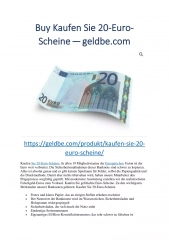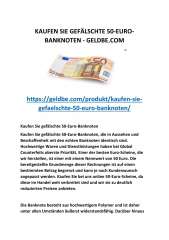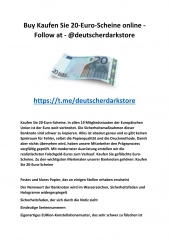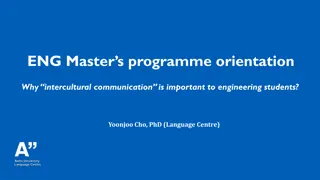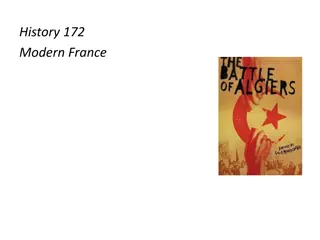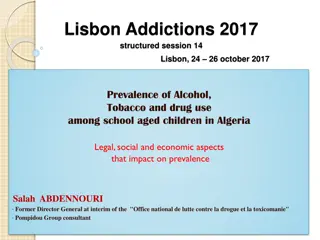Intercultural Trends in the Euro-Med Region: Algeria Results
The Anna Lindh Foundation commissioned Ipsos to conduct an opinion poll to measure intercultural trends in the Euro-Mediterranean Region. Data was collected from various European and SEM countries, including Algeria. The survey explored perceptions on Mediterranean way of life, migration issues, hospitality, common cultural heritage, and more. Algeria's results indicate varying viewpoints on these intercultural aspects.
Download Presentation

Please find below an Image/Link to download the presentation.
The content on the website is provided AS IS for your information and personal use only. It may not be sold, licensed, or shared on other websites without obtaining consent from the author. Download presentation by click this link. If you encounter any issues during the download, it is possible that the publisher has removed the file from their server.
E N D
Presentation Transcript
Intercultural Trends in the Euro-Med Region Country results: Algeria 1
Methodological note The Anna Lindh Foundation commissioned Ipsos to undertake its third opinion poll to measure intercultural trends in the Euro-Mediterranean Region. The opinion poll was carried out in eight European countries (Croatia, Cyprus, Czechia, Germany, Greece, Ireland, Romania, Sweden) and five SEM countries/territories (Algeria, Jordan, Lebanon, Mauritania, Morocco). The target population consists of all individuals aged 15 or older (16 in Czechia and Sweden), resident in each of the countries covered. In all countries, the target sample size was 1,000 fully- completed interviews. Fieldwork for all countries bar Mauritania took place between 9 March 2020 and 16 June 2020, with a suspension of fieldwork part-way through due to the COVID-19 pandemic. Fieldwork in Mauritania took place between 28 August 2020 and 09 October 2020. In all countries, a CATI (Computer Assisted Telephone Interviewing) methodology was implemented. Random probability sampling was used in all countries except Mauritania, where quota sampling was used. All findings presented are based on weighted data. A post-stratification weight was calculated that corrects for imbalances in the samples with respect to gender, age and activity status. Where the percentages provided do not add up to or exceed 100%, this may be due to rounding. 2 Intercultural Trends in the Euro-Mediterranean Region Results by country
Characteristics of the Mediterranean region European countries Comparison with European/SEM average Algeria Mediterranean way of life and food 61 28 47 8 EU 38 11 12 Migration issues 67 19 10 SEM 60 25 Hospitality 47 41 8 EU 65 67 30 23 2 Hospitality 64 25 7 SEM 7 Migration issues 14 44 35 17 EU 47 42 27 9 Common cultural heritage and history 58 24 SEM 56 12 Common cultural heritage and history 45 35 42 41 12 26 EU 67 4 Mediterranean way of life and food 16 SEM 48 33 15 26 EU SEM Instability and insecurity 33 21 45 27 20 52 31 24 Source of conflict 40 33 29 Source of conlict 28 25 EU SEM 41 29 14 59 20 24 Resistance to change 29 39 32 38 Resistance to change 31 22 SEM 45 24 EU 22 58 17 Instability and insecurity 28 38 28 33 35 Strongly characterise Somewhat characterise Not characterise at all DK/REF Survey question: Different people have different thoughts about what the Mediterranean region represents. I will read out a set of ideas and images; please tell me if you think these characterise the Mediterranean region strongly, somewhat or not at all. Base: all respondents (%), by country and country group 4 Intercultural Trends in the Euro-Mediterranean Region Results by country
Characteristics of the Mediterranean region European countries Algeria (2016) Mediterranean way of life and food Algeria (2020) 61 28 8 Hospitality 74 16 5 Migration issues 67 19 10 Hospitality 47 41 8 Common cultural heritage and history 67 20 9 Hospitality 64 25 7 Migration issues 44 35 17 Migration issues 66 17 13 Common cultural heritage and history 58 24 14 Common cultural heritage and history 42 41 12 Mediterranean way of life and food 56 29 10 Mediterranean way of life and food 45 35 16 26 Instability and insecurity 33 45 27 38 Source of conflict 28 22 40 Source of conflict 21 Source of conlict 28 25 41 29 Resistance to change 38 27 22 Resistance to change 29 39 Resistance to change 31 22 45 24 Instability and insecurity 33 35 28 Instability and insecurity 28 38 Strongly characterise Somewhat characterise Not characterise at all DK/REF Survey question: Different people have different thoughts about what the Mediterranean region represents. I will read out a set of ideas and images; please tell me if you think these characterise the Mediterranean region strongly, somewhat or not at all. Base: all respondents (%), by country 5 Intercultural Trends in the Euro-Mediterranean Region Results by country
Preferred countries to start a new life Comparison with 0.0% 10.0% 20.0% 30.0% 40.0% 50.0% 60.0% 70.0% Algeria 0.0% 10.0%20.0%30.0%40.0%50.0%60.0%70.0% European/SEM average Country of residence 51 40 Country of residence 49 Europe 21 36 Europe 20 SEM countries 9 7 6 North America North America 8 7 Australia and Oceania 1 Gulf countries 7 2 1 South America Asia 3 3 2 Asia Australia and Oceania 1 2 SEM countries 14 South America 1 0 Gulf countries 5 DK/REF 1 1 1 Africa European countries SEM countries Africa 0 3 DK/REF 2 Survey question: If you could start a new life, in which country of the world would you start it? Base: all respondents (%), by country and country group 6 Intercultural Trends in the Euro-Mediterranean Region Results by country
Preferred countries to start a new life 0.0% 10.0% 20.0% 30.0% 40.0% 50.0% 60.0% 70.0% Algeria (2020) 0.0% 10.0% 20.0% 30.0% 40.0% 50.0% 60.0% 70.0% Algeria (2016) Country of residence Country of residence 51 65 Europe Europe 21 13 SEM countries SEM countries 9 8 North America Gulf countries 8 5 Gulf countries North America 7 3 Asia Africa 3 2 Australia and Oceania Asia 1 1 South America Australia and Oceania 1 0 DK/REF South America 1 0 Africa DK/REF 0 2 Survey question: If you could start a new life, in which country of the world would you start it? Base: all respondents (%), by country 7 Intercultural Trends in the Euro-Mediterranean Region Results by country
Key values when raising children 0.0%10.0%20.0%30.0%40.0%50.0%60.0%70.0%80.0% European countries Comparison with Algeria 20.0% European/SEM average 0.0% 40.0% 60.0% 80.0% Respect for the other cultures 37 25 63 EU 4 4 30 Religious beliefs /practices 50 24 74 SEM 42 23 65 Family solidarity 24 25 49 EU 6 5 21 27 Obedience 26 27 53 SEM Independence 22 43 12 18 30 EU 25 22 47 Family solidarity 9 15 24 Curiosity 12 15 27 SEM 18 22 40 EU 25 29 54 Respect for the other cultures Obedience 10 7 14 21 10 20 SEM 11 17 29 EU 22 17 39 Religious beliefs /practices 3 5 9 Curiosity 6 11 17 SEM 4 7 11 DK/REF 1 EU 18 8 21 39 Independence 2 8 10 SEM 4 12 Most important Second most important EU 1 1 DK/REF 1 SEM 0.0%10.0%20.0%30.0%40.0%50.0%60.0%70.0%80.0% Survey question: In bringing up their children, parents in different countries may place different emphasis on different values. Assuming that we limit ourselves to six values only, I d like to know which one of these is most important, to you personally, when raising children? And the second most important? Base: all respondents (%), by country and country group 9 Intercultural Trends in the Euro-Mediterranean Region Results by country
Key values when raising children Perceptions about key values for parents raising children in Europe Perceptions in Algeria about key values of parents in: & European countries Key values in Algeria (for respondents personally) 0.0% SEM countries 0.0% 50.0% 50.0% Religious beliefs /practices Religious beliefs /practices 29 74 30 Obedience Obedience 53 31 30 Family solidarity Family solidarity 41 24 49 Respect for the other cultures Respect for the other cultures 26 21 19 Curiosity Curiosity 33 17 22 Independence Independence 24 10 22 DK/REF DK/REF 10 14 0 Survey question: In bringing up their children, parents in different countries may place different emphasis on different values. Assuming that we limit ourselves to six values only, I d like to know which one of these is most important, to you personally, when raising children? And the second most important? And which one of these six do you think is most important to parents raising children in Europe? And the second most important? Base: all respondents (%), by country and country group 10 Intercultural Trends in the Euro-Mediterranean Region Results by country
Key values when raising children Algeria (2020) Algeria (2016) 0.0%10.0%20.0%30.0%40.0%50.0%60.0%70.0%80.0% European countries Religious beliefs /practices 50 24 74 Religious beliefs /practices 43 27 70 Respect for the other cultures 37 25 63 Obedience 26 27 53 Obedience 24 26 25 51 Family solidarity 25 49 Family solidarity 9 15 24 Family solidarity 12 Independence 16 16 32 18 30 Respect for the other cultures Respect for the other cultures Curiosity 12 15 27 7 14 21 9 21 30 Obedience 10 10 20 Curiosity 6 11 17 Independence 3 6 9 Religious beliefs /practices 3 5 9 Independence 2 8 10 Curiosity 2 DK/REF 1 DK/REF 1 DK/REF 1 Most important Second most important 0.0%10.0%20.0%30.0%40.0%50.0%60.0%70.0%80.0% 0.0%10.0%20.0%30.0%40.0%50.0%60.0%70.0%80.0% Survey question: In bringing up their children, parents in different countries may place different emphasis on different values. Assuming that we limit ourselves to six values only, I d like to know which one of these is most important, to you personally, when raising children? And the second most important? Base: all respondents (%), by country 11 Intercultural Trends in the Euro-Mediterranean Region Results by country
Perceptions about womens roles in society Should women be playing a greater role? European countries Comparison with European/SEM average Algeria Women s role in: Economic and business life 54 22 43 2 58 18 17 EU Looking after children and the home 86 11 3 80 3 SEM 57 52 39 2 EU Business 46 31 22 30 17 SEM Political decision-making 30 42 53 41 4 53 40 5 EU Government and politics 25 39 30 29 SEM 38 56 3 EU Sports 37 29 32 44 30 24 SEM 33 60 33 4 EU The media 46 30 23 49 17 SEM Cultural and social life 47 50 2 60 64 36 28 2 EU Science and technology 64 26 8 SEM 10 44 52 2 EU Education, arts and culture 68 25 6 70 21 SEM 8 Greater role The same role A lesser role DK/REF Survey question: Compared to their present role in your country, do you think that women should be playing a greater, the same, or lesser role in each of the following domains: Base: all respondents (%), by country and country group 12 Intercultural Trends in the Euro-Mediterranean Region Results by country
Interest in SEM/European countries European countries Comparison with European/SEM average Algeria EU Natural environment and the impact 43 45 46 12 Cultural life & lifestyle 28 29 28 53 18 43 SEM of climate change 31 24 EU 33 51 15 Political situation 39 28 45 26 29 Cultural life & lifestyle 34 27 SEM 39 31 EU 25 57 18 Economic conditions 34 23 53 24 28 Economic conditions 38 28 SEM 41 31 EU 31 28 49 20 Religious beliefs and practices 27 47 18 41 41 43 Political situation 25 SEM 29 EU 18 22 44 38 Sports activities 12 34 53 57 Religious beliefs and practices 9 14 76 SEM 21 Very interested Somewhat interested Not interested DK/REF Survey question: Thinking about the countries bordering the southern and eastern shore of the Mediterranean Sea (asked in European countries)/European countries (asked in SEM countries), how interested are you in knowing about their: Base: all respondents (%), by country and country group 14 Intercultural Trends in the Euro-Mediterranean Region Results by country
Interest in SEM/European countries European countries Algeria (2016) Algeria (2020) Cultural life & lifestyle 29 28 53 18 32 Natural environment and the impact of climate change 43 28 Cultural life & lifestyle 26 41 Political situation 28 45 26 Economic conditions 38 28 34 Economic conditions 25 32 43 Economic conditions 39 23 53 24 Cultural life & lifestyle 34 27 Political situation 19 31 50 Religious beliefs and practices 47 18 41 41 Political situation 25 27 Sports activities 12 34 53 Religious beliefs and practices 19 21 60 Religious beliefs and practices 9 14 76 Very interested Somewhat interested Not interested DK/REF Survey question: Thinking about the countries bordering the southern and eastern shore of the Mediterranean Sea (asked in European countries)/European countries (asked in SEM countries), how interested are you in knowing about their: Interest about the natural environment and the impact of climate change was not asked in the 2016 survey. Base: all respondents (%), by country and country group 15 Intercultural Trends in the Euro-Mediterranean Region Results by country
Media role in shaping public perception Did media cause a change in views about people from SEM/European countries? SEM countries European countries Algeria Yes, in a positive way Yes, in a positive way 8 17 19 Yes, in a negative way Yes, in a negative way 14 32 26 I have seen, read or heard something but my views remained unchanged I have seen, read or heard something but my views remained unchanged 51 15 14 I have not seen, read or heard anything I have not seen, read or heard anything in the media 24 33 41 in the media DK/REF DK/REF 3 1 2 0% 10% 20% 30% 40% 50% 60% 70% Survey question: During the past 12 months, have you seen, read or heard anything in the media that has influenced your view of people in countries bordering the southern and eastern shore of the Mediterranean Sea (asked in European countries)/European countries (asked in SEM countries) Base: all respondents (%), by country and country group 16 Intercultural Trends in the Euro-Mediterranean Region Results by country
Most trusted media sources for cross-cultural reporting Comparison with 0.0% 10.0% 20.0% 30.0% 40.0% 50.0% 60.0% 70.0% Algeria 0.0% 10.0%20.0%30.0%40.0%50.0%60.0%70.0% European/SEM average 52 TV 50 TV 59 35 Online media 34 Online media 32 15 Social media Social media 32 36 23 24 Books Books 26 45 Print media Print media 21 24 42 Films/documentaries Films/documentaries 17 18 30 Radio Radio 15 21 5 4 Other Other 5 1 Europe SEM DK/REF DK/REF 4 3 Survey question: Which of the following sources do you trust most for information about countries bordering the southern and eastern shore of the Mediterranean Sea (asked in European countries)/European countries (asked in SEM countries)? Base: all respondents (%), by country and country group 17 Intercultural Trends in the Euro-Mediterranean Region Results by country
Interactions with people from different countries Algeria Comparison with European/SEM average 0.0%10.0% 20.0% 30.0% 40.0% 50.0% 60.0% 70.0% 80.0% % yes % yes 0.0% 10.0%20.0%30.0%40.0%50.0%60.0%70.0%80.0% Talked to or met someone from a European country (in the past 12 months) Talked to or met someone from a SEM/European country (in the past 12 months) 52 44 46 41 Relatives or friends in SEM/European countries Relatives or friends in European countries 84 82 Europe SEM Survey question: In the past 12 months, have you talked to or met someone from a country bordering the southern and eastern shore of the Mediterranean Sea (asked in European countries)/a European country (asked in SEM countries)? (top bar in the chart) Do you have any relatives or friends who live in countries bordering the southern and eastern shore of the Mediterranean Sea (asked in European countries)/European countries (asked in SEM countries)? (bottom bar) Base: all respondents (%), by country and country group 19 Intercultural Trends in the Euro-Mediterranean Region Results by country
Cross-cultural encounters Method of interaction Comparison with 0.0% 10.0%20.0%30.0%40.0%50.0%60.0%70.0%80.0% Algeria 0.0% 10.0% European/SEM average 20.0% 30.0% 40.0% 50.0% 60.0% 70.0% The internet/social media 42 74 Business or work 15 Business or work 23 14 They live in my neighbourhood 9 19 Met in the street/public space 8 Tourism 11 17 They live in my neighbourhood 6 Met in the street/public space 9 10 10 Tourism 5 Friends and family 10 Friends and family 5 School 2 8 School 1 The internet/social media 59 4 Other Other 1 2 Sport or leisure Sport or leisure 0 0 Europe SEM 0 0 DK/REF DK/REF 0 Survey question: Thinking of this/these person(s) you have interacted with, was this mainly through: Base: respondents who have talked to or met someone from a SEM/European country in the past 12 months (%), by country and country group Note: Family and friends and sports and leisure categories were created after fieldwork had been completed. Some verbatim responses to other specify were recoded into these two categories. 20 Intercultural Trends in the Euro-Mediterranean Region Results by country
Interactions with people from different countries Algeria 2020 2016 % of respondents who talked to or met someone from a European country 14 15 Business or work 6 0.0% 20.0% 40.0% 60.0% 80.0% They live in my neighbourhood 9 5 Tourism 18 8 2020 Met in the street/public space 44 14 5 Family and friends (2020 only) 0 1 School 5 74 The internet/social media 2016 24 33 5 Other 23 0 0 DK/REF Due to differences in question wording, caution should be exercised when comparing the 2020 and 2016 results. Survey question (2020 and 2016): In the past 12 months, have you talked to or met someone from a country bordering the southern and eastern shore of the Mediterranean Sea (asked in European countries)/a European country (asked in SEM countries)? Thinking of this/these person(s) you have interacted with, was this mainly through: Survey question (2012): In the last 12 months have you personally talked to or met with any person (or persons) from countries bordering the southern and eastern shore of the Mediterranean Sea (asked in European countries)/European countries (asked in SEM countries)? How did you meet or talk to that person? Base: all respondents (left-hand chart) and respondents who have talked to or met someone from a SEM/European country in the past 12 months (right-hand chart) (%), by country 21 Intercultural Trends in the Euro-Mediterranean Region Results by country
Cross-cultural encounters Did meeting people from SEM/European countries cause a change in views? Algeria European average SEM average Yes, mainly in a positive way 44 27 Column1 Yes, mainly in a positive way 41 Yes, both positive and negative 18 Yes, mainly in a positive way 16 Yes, both positive and negative 12 Yes, mainly in a negative way 12 Yes, both positive and negative 2 Yes, mainly in a negative way 9 My views remained unchanged 26 55 Yes, mainly in a negative way My views remained unchanged 37 DK/REF My views remained unchanged 0 DK/REF 1 0 -30% 20% 70% -30% 20% 70% -30.0% 20.0% 70.0% Survey question: Thinking of your encounter(s) with this/these person(s), did meeting or talking to them change or reinforce your view of people from countries bordering the southern and eastern shore of the Mediterranean Sea (asked in European countries)/European countries (asked in SEM countries)? Base: respondents who have talked to or met someone from a SEM/European country in the past 12 months (%), by country and country group 22 Intercultural Trends in the Euro-Mediterranean Region Results by country
Barriers to cross-cultural encounters Comparison with 0.0%10.0%20.0%30.0%40.0%50.0%60.0%70.0%80.0% Algeria -8.0% 2.0%12.0%22.0%32.0%42.0%52.0%62.0%72.0%82.0% European/SEM average 81 Visa and travel difficulties 75 Not speaking the same language 68 62 Cultural tensions or conflicts throughout Not speaking the same language 68 history 46 65 Cultural tensions or conflicts throughout Social and cultural constraints 58 history 46 57 Visa and travel difficulties Economic barriers 55 67 57 Economic barriers Social and cultural constraints 55 50 53 Religion Religion 49 37 Europe SEM Survey question: To what extent, if at all, are each of the following a barrier, when meeting with or talking to people from different cultures? [share who say it is a big barrier or somewhat of a barrier ] Base: all respondents (%), by country and country group 23 Intercultural Trends in the Euro-Mediterranean Region Results by country
European countries Perceptions about religious and cultural diversity People from different cultural and religious backgrounds should have the same rights and opportunities 68 Comparison with European/SEM average 23 3 4 Algeria EU People from different cultural and religious backgrounds should have the same rights and opportunities 77 16 3 3 Cultural and religious diversity is important for the prosperity of your society 62 18 16 4 SEM 69 15 4 11 36 35 12 15 Cultural and religious diversity is important for the prosperity of your EU 45 32 15 7 50 20 25 4 SEM 59 19 5 15 society Cultural and religious diversity constitutes a threat to the stability of society 14 EU 22 40 22 23 Cultural and religious diversity constitutes a threat to the stability of 10 18 47 39 18 38 5 SEM 30 15 10 43 society Strongly agree Somewhat agree Somewhat disagree Strongly disagree DK/REF Survey question: How much do you agree or disagree with the following statements? Base: all respondents (%), by country and country group 25 Intercultural Trends in the Euro-Mediterranean Region Results by country
European countries Perceptions about religious and cultural diversity People from different cultural and religious backgrounds should have the same rights and opportunities 68 23 3 4 Algeria (2020) Algeria (2016) People from different cultural and religious backgrounds should have the same rights and opportunities Cultural and religious diversity is important for the prosperity of your society 62 18 16 61 17 10 4 8 36 35 12 15 Cultural and religious diversity is important for the prosperity of your 50 20 25 54 17 14 4 12 society Cultural and religious diversity constitutes a threat to the stability of society 39 18 5 14 22 40 22 Cultural and religious diversity constitutes a threat to the stability of 38 40 16 29 11 society Strongly agree Somewhat agree Somewhat disagree Strongly disagree DK/REF Survey question: How much do you agree or disagree with the following statements? Base: all respondents (%), by country 26 Intercultural Trends in the Euro-Mediterranean Region Results by country
Cultural diversity and tolerance European countries Comparison with European/SEM average Algeria Would you mind: Having a person from a different cultural background as a work colleague EU 82 10 2 78 12 6 3 4 Having a person from a different cultural background as a neighbour 81 4 6 9 SEM 79 7 9 6 If your children were to go to school with children from a different cultural background Having a person from a different cultural background as a work 81 11 2 EU 84 9 5 2 5 80 4 5 11 SEM 78 7 9 6 colleague Having a person from a different cultural background as a neighbour If one of your close relatives were to marry someone from a different cultural background 78 13 2 EU 11 70 13 4 6 66 6 13 14 SEM 68 7 12 12 If one of your close relatives were to marry someone from a different cultural background If your children were to go to school with children from a different cultural 65 14 13 6 EU 78 11 7 3 62 6 18 14 SEM 60 9 16 14 background Not mind at all Not mind too much Mind a little Mind a lot NA/DK/REF Survey question: I am now going to read out a number of scenarios. For each of them, please tell me whether you would mind a lot, mind a little, or whether you would not mind too much, or not mind at all. Base: all respondents (%), by country and country group 27 Intercultural Trends in the Euro-Mediterranean Region Results by country
Living together in multicultural environments Actions that can help people live better together Comparison with European/SEM average Algeria To ensure that schools are places where children learn how to live in EU 73 72 20 19 3 2 5 66 22 2 9 SEM 2 diversity To encourage local authority and civil society initiatives that promote intercultural dialogue EU 48 41 5 3 3 5 65 24 3 7 SEM 67 23 EU 12 30 27 27 8 To restrict cultural practices to the 57 31 3 8 SEM 46 30 12 private sphere EU 45 43 7 4 To promote the organisation of multi- 54 28 5 12 SEM 58 28 4 7 cultural events EU 39 44 9 5 To enable the expression of cultural diversity in public spaces 51 31 5 13 SEM 51 31 6 10 Survey question: Today s societies are becoming more and more diverse as a result of migration. How effective do you think that each of the following actions would be in helping people live better together in a multi-cultural environment? Base: all respondents (%), by country and country group 28 Intercultural Trends in the Euro-Mediterranean Region Results by country
Tackling polarisation and hate speech Preventing and dealing with challenges such as hate speech and polarisation Comparison with European/SEM average Algeria EU Support of youth participation in 60 64 32 29 4 3 2 3 48 45 2 4 SEM public life Education and youth programmes to foster youth-led dialogue initiatives Media training for cross-cultural EU 64 62 29 30 4 3 2 3 47 45 4 4 SEM EU 38 45 9 5 4 46 46 4 3 SEM reporting 57 35 3 Exchange programmes involving people across the Mediterranean EU 51 50 37 37 6 3 37 48 6 7 SEM 4 5 EU 38 45 9 5 Cultural and artistic initiatives 37 49 7 6 SEM 50 38 5 5 EU 37 39 12 6 9 Inter-religious dialogue 37 38 9 15 SEM 52 29 10 Trainings in diversity management and radicalisation prevention EU 42 39 9 5 6 7 32 48 6 10 SEM 48 35 Survey question: Many countries, in Europe and in the countries on the southern and eastern Mediterranean shores, are facing challenges, such as hate speech and opposing cultural views. How effective do you think that each of the following will be in preventing and dealing with these challenges? Base: all respondents (%), by country and country group 29 Intercultural Trends in the Euro-Mediterranean Region Results by country
Gains from Euro-Med cooperation Comparison with European/SEM average Algeria EU 45 42 11 Economic growth and employment 62 29 12 SEM 71 20 7 EU 53 37 9 Education and training 71 20 8 SEM 78 16 6 EU 41 43 14 10 Environmental sustainability 62 21 16 SEM 70 18 EU 48 41 10 12 Recognition of cultural diversity 55 23 20 SEM 63 22 EU 38 45 15 16 Individual freedom and rule of law 47 27 24 SEM 54 26 EU 34 42 20 Fair response to refugee situation 49 28 20 SEM 57 26 14 EU 37 38 24 26 Gender equality 39 21 38 SEM 51 21 Support for NGOs and civil society EU Finland 35 47 14 42 25 28 organisations SEM 50 25 19 Definitely Maybe No DK/REF Survey question: Your country, with other European/SEM countries, has decided to reinforce closer cooperation with SEM/European countries. Which of the following do you think your society can gain by reinforcing such cooperation? Cultural diversity and prevention of 55 33 11 Base: all respondents (%), by country and country group Opportunities for education and training 48 40 11 31 Intercultural Trends in the Euro-Mediterranean Region Results by country Environmental sustainability 45 36 18 Equality between men and women 43 32 24 43 Fair response to refugee crisis 42 13 Entrepreneurship, innovation and 39 45 14 Individual freedom and rule of law 37 40 18 Support for NGOs and civil society 26 54 17
Gains from Euro-Med cooperation Algeria (2020) Algeria (2016) Education and training Education and training 58 28 10 71 20 8 Entrepreneurship, innovation and Economic growth and employment 57 30 10 62 26 12 Environmental sustainability Recognition of cultural diversity 53 29 12 55 23 20 Recognition of cultural diversity Individual freedom and rule of law 50 27 17 47 27 24 Individual freedom and rule of law 44 Environmental sustainability 62 30 20 21 16 Fair response to refugee situation Gender equality 41 32 20 39 21 38 Gender equality Support for NGOs and civil society 36 29 32 42 25 28 Finland Support for NGOs and civil society Fair response to refugee situation 35 28 24 49 28 20 Definitely Maybe No DK/REF Due to substantial differences in question wording, caution should be exercises when comparing the 2016 and 2020 results. Cultural diversity and prevention of 55 33 11 Survey question (2016): Your country, with other European/SEM countries, has decided to reinforce closer cooperation with SEM/European countries in the framework of the European Neighbourhood Policy. Which of the following do you think your society can gain by reinforcing such cooperation? Opportunities for education and training 48 40 11 Survey question (2020): Your country, along with other countries bordering the southern and eastern shore of the Mediterranean Sea, has decided to reinforce closer cooperation with European countries. Which of the following do you think your society can improve by reinforcing such cooperation? Environmental sustainability 45 36 18 Base: all respondents (%), by country Equality between men and women 43 32 24 32 Intercultural Trends in the Euro-Mediterranean Region Results by country 43 Fair response to refugee crisis 42 13 Entrepreneurship, innovation and 39 45 14 Individual freedom and rule of law 37 40 18 Support for NGOs and civil society 26 54 17
European countries Impact of digital technology People from different cultural and religious backgrounds should have the same rights and opportunities 68 23 3 4 Comparison with European/SEM average Algeria EU Digital technology can play an important role in facilitating dialogue between people from different cultures 53 35 8 3 3 Cultural and religious diversity is important for the prosperity of your society 81 14 1 SEM 77 17 2 8 36 35 12 15 EU 42 41 10 3 Skills for intercultural dialogue can be enhanced via digital tools 71 22 6 2 SEM 64 25 3 6 Cultural and religious diversity constitutes a threat to the stability of society 14 EU 22 33 40 9 22 Cultural barriers are less of an obstacle during online (digital) communication compared to offline (face-to-face) 36 17 44 27 21 7 SEM 48 27 8 16 communication Strongly agree Somewhat agree Somewhat disagree Strongly disagree DK/REF Survey question: With regard to the use of digital technology, please tell me to what extent you agree or disagree with each of the following statements: Base: all respondents (%), by country and country group 34 Intercultural Trends in the Euro-Mediterranean Region Results by country
Demographic profile Algeria (n=1,003) 51% 49% 45% 37% 14% 4% 1% 40% 60% 0% 19% European countries (n=8,171) 48% 51% 19% 32% 25% 23% 1% 57% 41% 2% 8% SEM countries (n=5,093) 51% 49% 40% 38% 15% 5% 2% 42% 58% 0% 38% Men Women 15-29 30-49 50-64 65+ DK/REF Employed Unemployed or inactive DK/REF Primary education or less Secondary or post-secondary non-tertiary education University-level education Roman Catholic Protestant Muslim Jewish Other Unaffiliated Gender Age Activity status Level of education 43% 49% 31% 37% 0% 0% 100% 0% 0% 0% 41% 18% 18% 2% 0% 19% 35% 31% 1% 0% 93% < 1% 1% 4% Religion This table compares the sample profiles (after weighting) by country and country group. A post-stratification weight was applied that corrects for imbalances in the samples with respect to gender, age and activity status. 36 Intercultural Trends in the Euro-Mediterranean Region Results by country
Femke De Keulenaer Research director, Ipsos SRI +32 2 642 48 60 +32 485 18 23 50 femke.dekeulenaer@ipsos.com www.ipsos-mori.com/ www.ipsos-mori.com/ 37 Intercultural Trends in the Euro-Mediterranean Region Results by country


